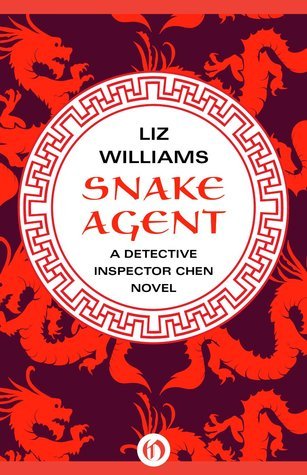What do you think?
Rate this book


333 pages, ebook
First published September 1, 2005
John Constantine meets Chow Yun-Fat in this near-future occult thriller!
"I'm going to need a leave of absence."
"To do what?"
"Go to Hell, sir."
There was a short pregnant pause, then Sung said, "You nicked my line, Detective."
It was just past six, and the sun was already sinking down over the port in a smear of fire. Chen boarded the first available tram, and stood in the midst of a packed crowd of commuters, noting the exhaustion that seemed to hang like a miasma over each figure. No wonder people seemed to have so little time these days to devote themselves to considerations of the afterlife, Chen reflected, and no wonder Hell was getting out of hand. Even twenty years ago it was still common to see the small shrines outside each door, and for old people to speak of the gods as real, living presences. Now, paradoxically, the other worlds were closer than they had been since ancient times; with new technology to speed up all manner of communication, yet people seemed to take less and less interest in spiritual matters. Perhaps it was simply too much to bear, Chen thought; perhaps it was too much to ask of people to concern themselves with something other than the daily grind. Whatever the reason, it did not make his work any easier.



'That uncomfortable, nagging, sensation was back. He'd suffered from this on and off since childhood, like the prick of a pin inside his mind, and had even gone so far as t visit a remedy maker. What had the old man called it? Conscience, or some such - a human disease, anyway, and there was apparently nothing that could be done about it.'The protagonist Detective Inspector Wei Chen, protege of a goddess Kuan Yin and someone who is connected to both Earth and Hell, ends up working with a demon cop.
' "You don't really want to do this, Zhu Irzh." "Are you accusing me of having principles?" the demon said, outraged.'A young girl died and her mother found out that she ended up in Hell.
'Usually, if you die in a normal manner, an officer comes to you with a warrant, and takes you to the Night Harbor, which is where the boat leaves for the other worlds.'Chen would soon realize that ghost's disappearance is only a small piece of a greater and much more dangerous puzzle.